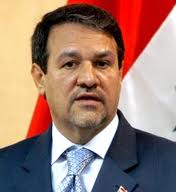The Libyan Investment Authority is struggling
to recover the remainder of its assets frozen during the revolution. The
outstanding amount is calculated at between US$50-60 billion. About US$1.39
billion of this is in Italy and a slightly larger amount is locked in
investments made four or five years ago.
A very positive note has been struck by the recent release of
tenders for the refurbishment and development of two tourist hotels – one in
Benghazi and one in Misurata.
The National Mixed Thoroughbred Horse Auction on 13 October,
held at the Al Shaab Stud also indicated that “things are moving” and that a
measure of normality in day-to-day living is possible. This event in Tajoura
attracted bidders from across the globe. Prices have been higher in the past,
but Libyan racehorses and this auction continue to be internationally
recognised.
Tobruk airport is looking to gain a licence for international
flights. The airport director Mohamed Manfour is very positive
as, with approval, transport of haj pilgrims to Saudi Arabia would be possible.
This year Saudi Arabia has agreed to increase the number of
Libyans permitted to attend the celebrations which take place between 24-29
October and many Libyan pilgrims have already flown to Jedda from other
airports.
A three-day exhibition, Technology of Oil and Gas, is currently
running in Tripoli with the support of NOC. It aims to attract new ventures and
foreign capital back to Libya. See more information on NOC in sections below.
A small group of Libyan officials – from the Ministries of
Economics, Defence, Labour and Foreign Affairs - are currently on a five-day
training course in Warsaw. The Polish School of Public Administration is
providing lectures and workshops suitable for administering “a country in
transition”.
Training is also being provided for 160 officers in the armed
forces by the International Committee of the Red Cross. The programme aims to
draw attention to the legal responsibilities under humanitarian law and their
application to both armed conflict and the treatment of prisoners. Those trained
will pass on the information provided.
For more news and expert analysis about Libya, please see
Libya Focus and
Libya
Politics & Security.
© 2012 Menas Associates

.jpg)













